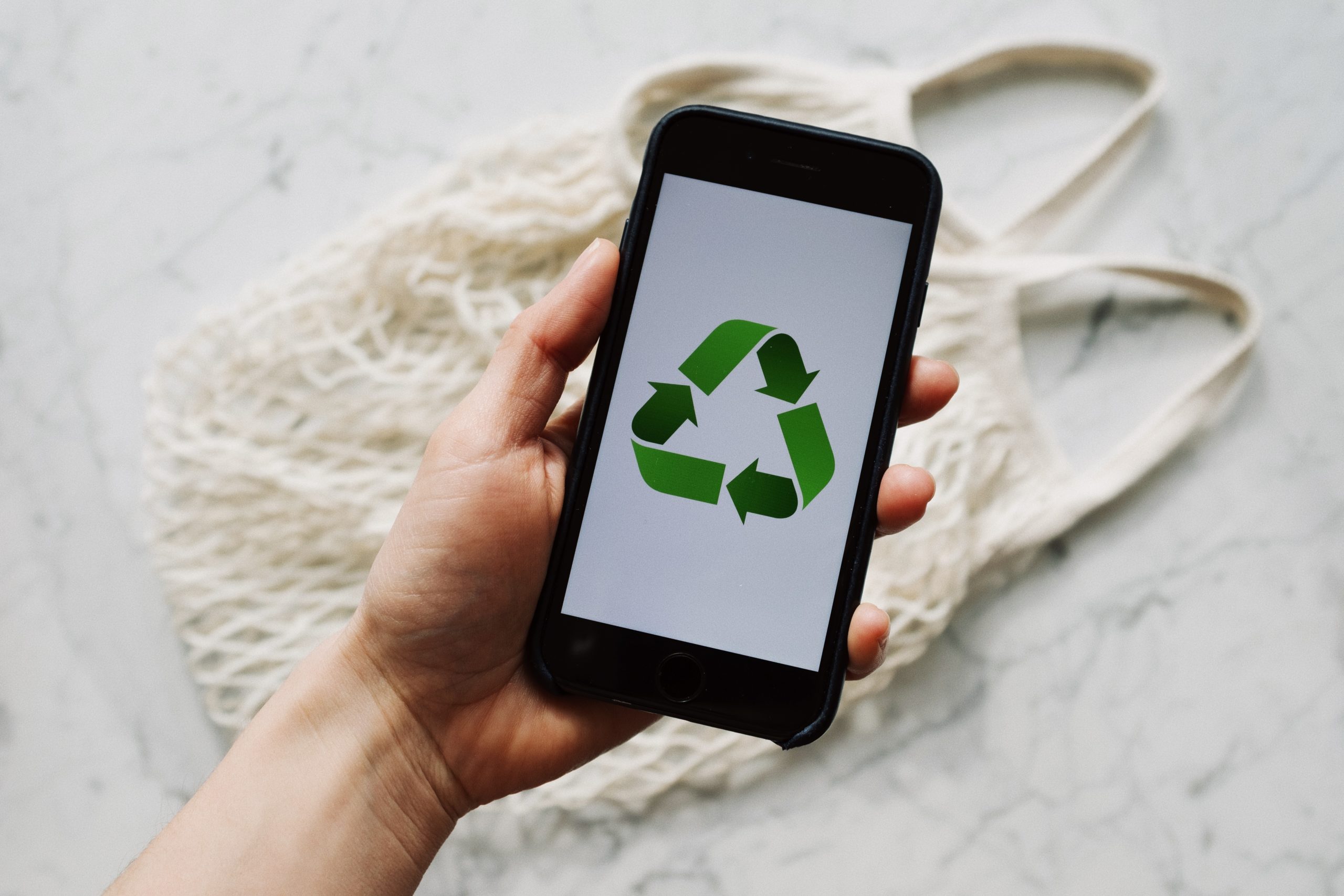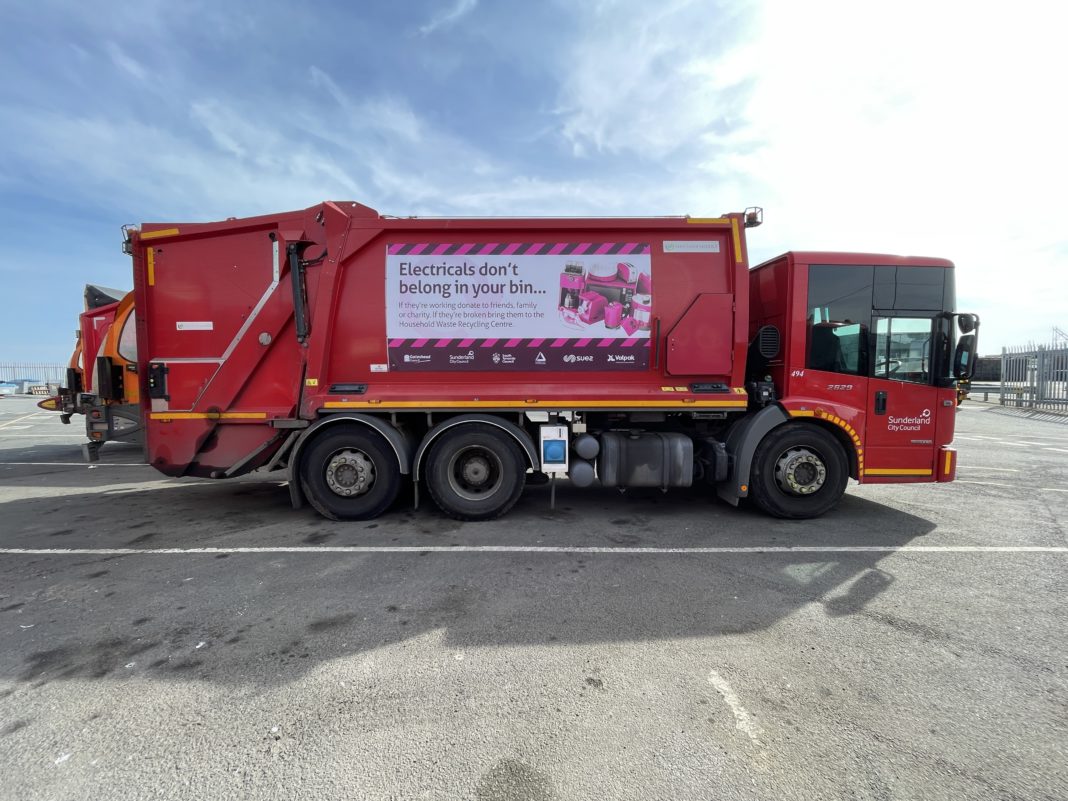Posters displayed on bin lorries are reminding Sunderland residents to properly dispose of batteries and electronics.
The signage warns residents that electronics should not be placed with household waste or recycling because of the fire risk.
The warnings come on the back of fires breaking out at two waste transfer stations in the region.
Gateshead’s facility in Wrekenton, which is also used to transfer waste from Sunderland, was recently closed after a serious fire in one of its buildings. Nearby, Middlefields waste transfer station in South Tyneside has recently seen a fire caused by batteries being placed in household waste.

The fire at Middlefields is believed to have been started by sparks from a phone battery which had been thrown into the waste and caused other waste to ignite. Staff on site reacted quickly to get the fire under control and limit any damage.
Sunderland Council is urging the public never to throw old electronics, batteries or battery-operated devices into the bin.
The City Council’s Executive Director of Neighbourhood Services, Fiona Brown, said: “Recent fires at waste transfer stations in the North East show the very real dangers of throwing old batteries into the bin. These batteries can touch other metal objects in the bin, generating sparks and causing a fire. The resources and chemicals found in batteries can also cause harm to the environment if not disposed of properly.
“Instead batteries can be disposed of at your nearest battery bank or supermarket which offers battery recycling.
“We are calling on everyone to do their bit for the city and the planet by making sure they only put the right things in their recycling bins and if in doubt, leave it out.”
Julie Craigie, regional manager for SUEZ Recycling and Recovery UK, says: “If batteries or battery-operated devices are put in a general waste or recycling bin, as soon as they are tipped into the collection trucks they become dangerous and can cause fires.
“We know that people won’t intentionally cause a fire and risk injury to collection crews and damage to our facilities, but by not disposing of batteries and electronic devices properly that is what can happen.
“We would ask everyone to please take a moment to consider what you are throwing into the bin and if it is battery or a device with a sealed battery unit, please dispose of it correctly. There are battery collection points in most supermarkets and many High Street shops, and small electrical items can be taken you your nearest Household Waste and Recycling Centre.”
What can I recycle?
In the main part of the recycling bin:
– All white, grey and brown cardboard eg cardboard packaging, cereal boxes, toothpaste boxes, ready meal sleeves, toilet roll inner tubes, etc – but not greasy pizza boxes
– Empty food tins, drink cans, and aerosols eg pet food cans, baby milk formula tins, pop cans, foil pie trays, etc
– Household plastic packaging eg plastic bottles and plastic food packagings such as yogurt pots and the boxes you get ready meals and fruit in
– Glass bottle and jars – eg jam jars, perfume bottles and coffee jars
– Greetings cards without glitter
In the black box:
– Paper including newspapers, junk mail, telephone directories, catalogues, envelopes, printed paper and loose shredded paper.
















